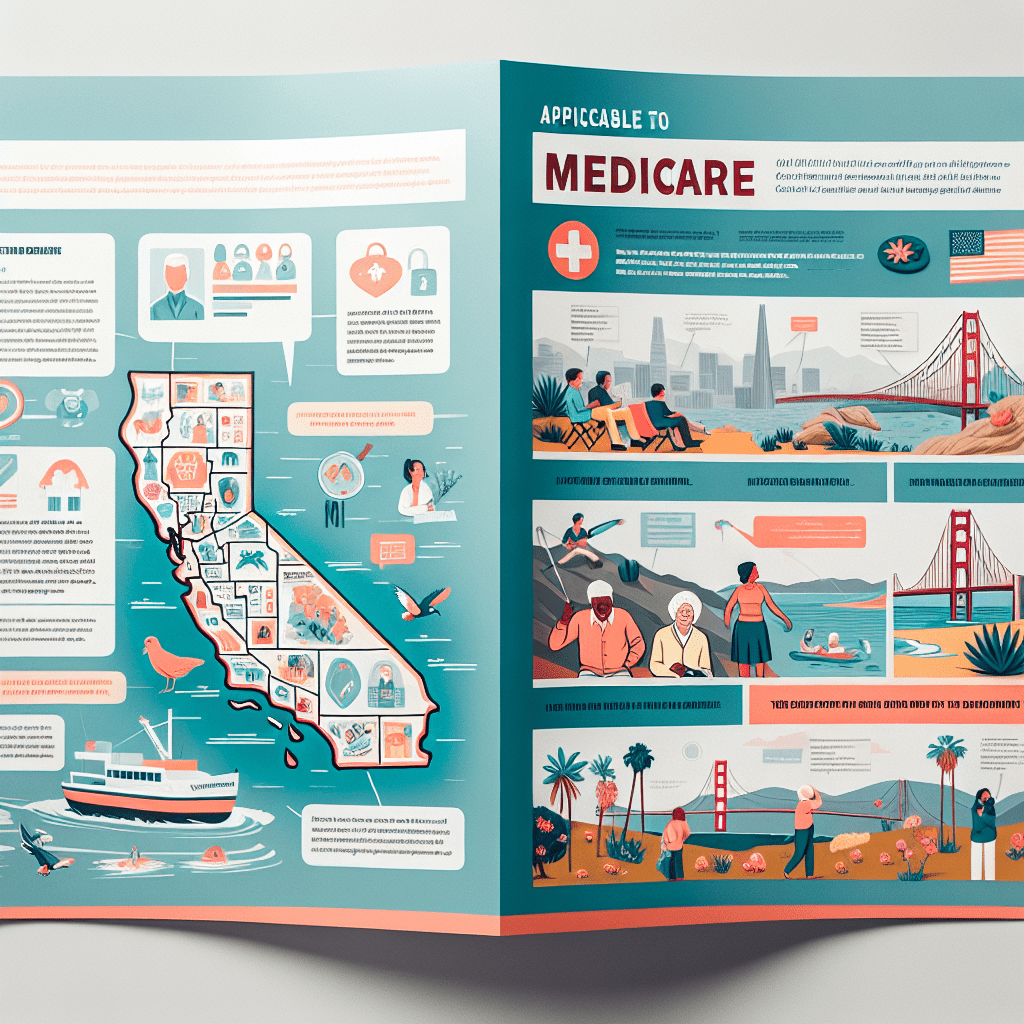New to Medicare in Mountain Center, CA
Medicare Services in Mountain Center, CA
Navigating the world of Medicare can be daunting, especially if you’re new to it. If you’re in Mountain Center, CA, and looking to understand Medicare, you’re in the right place. This guide will help clarify what you need to know about enrolling in Medicare, the different parts of Medicare, and how to make the best choices for your healthcare needs.
Understanding Medicare: The Basics
Medicare is a federal health insurance program primarily for people aged 65 and older, but it also covers certain younger individuals with disabilities. If you’re wondering about the different parts of Medicare and what they cover, here’s a breakdown:
What Are the Different Parts of Medicare?
Medicare consists of several parts, each serving different needs:
- Medicare Part A: Hospital insurance that covers inpatient stays, skilled nursing facility care, hospice care, and some home health care.
- Medicare Part B: Medical insurance covering certain doctors’ services, outpatient care, medical supplies, and preventive services.
- Medicare Part C: Also known as Medicare Advantage, these plans are offered by private companies approved by Medicare. They include Parts A and B and often Part D.
- Medicare Part D: Prescription drug coverage that helps cover the cost of prescription drugs.
When and How to Enroll in Medicare
Knowing when to enroll in Medicare is crucial to avoid penalties and ensure you have the coverage you need.
When Should You Enroll in Medicare?
Most people should enroll in Medicare around their 65th birthday. You have a seven-month window to sign up, which starts three months before your birthday month and ends three months after. If you are already receiving Social Security benefits, you’ll be automatically enrolled in Parts A and B.
How Do You Enroll in Medicare?
You can enroll in Medicare through the Social Security Administration. Options include enrolling online, over the phone, or visiting a local Social Security office. It’s wise to consult with a knowledgeable agent to ensure you’re making the right choices for your situation.
Medicare Costs and Penalties
Understanding the costs associated with Medicare can help in planning your healthcare expenses.
Is There a Cost for Medicare Parts A and B in 2025?
- Medicare Part A is usually premium-free if you or your spouse paid Medicare taxes while working.
- Medicare Part B has a monthly premium, which can vary based on your income. The Medicare Income-Related Monthly Adjustment Amount (IRMAA) may apply if your income is above a certain level.
What Are Medicare Penalties?
Failing to enroll in Medicare when you’re first eligible can result in penalties. For example, if you don’t sign up for Part B when first eligible, you may have to pay a late enrollment penalty for as long as you have Part B. The same applies to Part D if you go without prescription drug coverage for 63 days or more.
Choosing Between Medicare Advantage and Medicare Supplement
Choosing the right plan depends on your healthcare needs, budget, and preferences.
Medicare Advantage or Medicare Supplement?
- Medicare Advantage Plans (Part C): These are all-in-one plans that include Parts A, B, and usually D. They may offer additional benefits like vision, dental, and hearing. However, they typically require you to use a network of doctors and hospitals.
- Medicare Supplement Plans (Medigap): These plans help cover costs that Original Medicare doesn’t cover, like copayments, coinsurance, and deductibles. They allow you to see any doctor that accepts Medicare patients.
Prescription Drug Coverage and Medicare Part D
Do I Need a Medicare Prescription Drug Plan?
If you have significant prescription drug costs, a Medicare Part D plan can be beneficial. Enrolling when you’re first eligible helps avoid late enrollment penalties.
What If I Don’t Enroll in Medicare Part D?
Without Part D, you might face a penalty if you decide to enroll later. The penalty is calculated based on the number of months you were eligible but didn’t enroll.
Working with a Knowledgeable Agent
Choosing the right Medicare plan can be complicated, and working with an agent can be helpful.
Difference Between a Captive Agent and a Broker
- Captive Agent: Represents a single insurance company and can only offer that company’s products.
- Broker: Represents multiple insurance companies and can offer a variety of options to fit your needs.

What’s the Best Way to Check an Agent’s Online Reviews?
You can check an agent’s reputation through platforms like Yelp, Google Reviews, and Trustpilot , The Better Business Bureau. These platforms offer insights into other customers’ experiences with the agent.
Medicare and the Inflation Reduction Act 2022
The Inflation Reduction Act of 2022 has introduced changes to Medicare, aimed at reducing out-of-pocket costs for prescription drugs and expanding access to affordable healthcare.
Who Can Enroll in Medicare?
Besides those aged 65 and over, individuals under 65 with certain disabilities or conditions like End-Stage Renal Disease (ESRD) or Amyotrophic Lateral Sclerosis (ALS) can also enroll.
Medicare Annual Open Enrollment Period
Every year, from October 15 to December 7, you can make changes to your Medicare Advantage and Part D plans. This is an opportunity to ensure your plan fits your needs for the upcoming year.
Medicare with a Disability
If you are under 65 and have a qualifying disability, you can enroll in Medicare. Generally, after receiving Social Security Disability Insurance (SSDI) for 24 months, you’re eligible for Medicare coverage.
Conclusion
Navigating Medicare can be challenging, but understanding your options and timelines can make the process smoother. Whether you’re considering Medicare Advantage or Medigap, or need prescription drug coverage, working with knowledgeable agents and using trusted resources can help you make informed decisions. Always stay informed about the latest changes and updates, like those introduced by the Inflation Reduction Act, to ensure you’re getting the best possible care and coverage.

